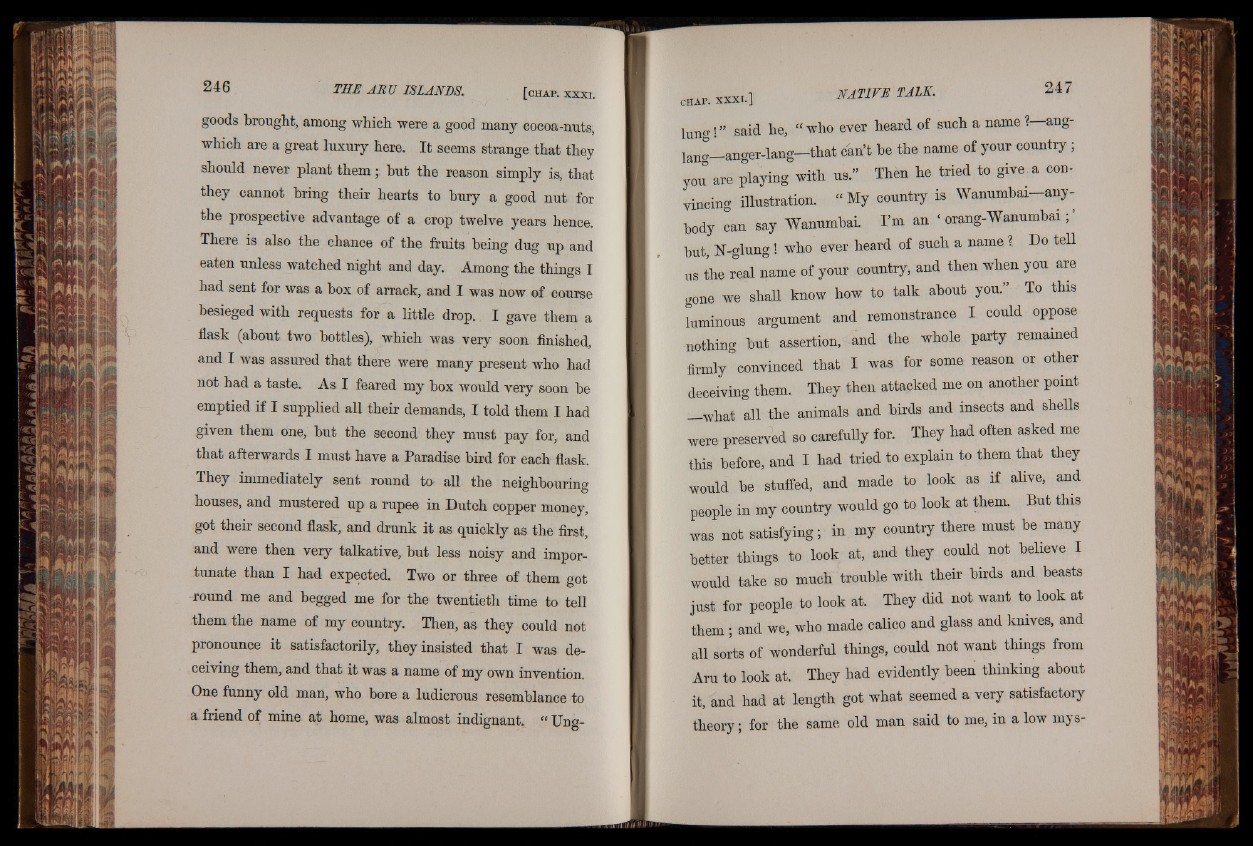
goods brought, among which were a good many cocoa-nuts,
which are a great luxury here. It seems strange that they
should never plant them; but the reason simply is, that
they cannot bring their hearts to bury a good nut for
the prospective advantage of a crop twelve years hence.
There is also the chance of the fruits being dug up and
eaten unless watched night and day. Among the things I
had sent for was a box of arrack, and I was now of course
besieged with requests for a little drop. I gave them a
flask (about two bottles), which was very soon finished,
and I was assured that there were many present who had
not had a taste. As I feared my box would very soon be
emptied if I supplied all their demands, I told them I had
given them one, but the second they must pay for, and
that afterwards I must have a Paradise bird for each flask.
They immediately sent round to all the neighbourins? O £5
houses, and mustered up a rupee in Dutch copper money,
got their second flask, and drunk it as quickly as the first,
and were then very talkative, but less noisy and importunate
than I had expected. Two or three of them got
round me and begged me for the twentieth time to tell
them the name of my country. Then, as they could not
pronounce it satisfactorily, they insisted that I was deceiving
them, and that it was a name of my own invention.
One funny old man, who bore a ludicrous resemblance to
a friend of mine at home, was almost indignant. “ Un«-
lung!” said he, “ who ever heard of such a name?—ang-
lan<y—anger-lang—that can’t be the name of your countiy;
you are playing with us.” Then he tried to give-a convincing
illustration. “ My country is Wanumbai—anybody
can say Wanumbai. I ’m an ‘ orang-Wanumbai; ’
but, N-glung! who ever heard of such a name I Do tell
us the real name of your country, and then when you are
gone we shall know how to talk about you.” To this
luminous argument and remonstrance I could oppose
nothing but assertion, and the whole party remained
firmly convinced that I was for some reason or other
deceiving them. They then attacked me on another point
—what all the animals and birds and insects and shells
were preserved so carefully for. They had often asked me
this before, and I had tried to explain to them that they
would be stuffed, and made to look as if alive, and
people in my country would go to look at them. But this
was not satisfying; in my country there must be many
better things to look at, and they could not believe I
would take so much trouble with their birds and beasts
just for people to look at. They did not want to look at
them ; and we, who made calico and glass and knives, and
all sorts of wonderful things, could not want things from
Aru to look at. They had evidently been thinking about
it, and had at length got what seemed a very satisfactory
theory; for the same old man said to me, in a low mys